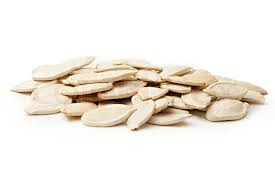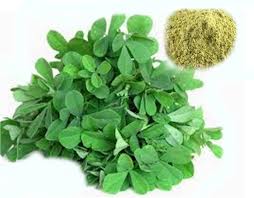
6 Foods & Herbs For Breastfeeding
Written by Aimee McNew, MNTShare
Much has been said and written about breastfeeding. It can feel overwhelming to sort out what information is legitimate, and what can be rejected. "Breast is best" is a concept that is gaining strength with each passing year. This is because breast milk has many benefits for your baby's immune system; in addition, it helps the baby's digestive system function optimally.
This happens because breast milk infuses your baby's digestive tract with probiotics that your body produces. Most of our immune system resides in our gut, which is true for babies as well. Without a well-functioning gut, the immune system suffers, vitamins B and K are not produced or absorbed, and overall health is less than what it could be.
Digestion is imperative for health — and it all starts with breast milk. "Your baby is what you eat" is a true concept. If you eat an apple, orange, grapefruit, or piece of meat, within 30 to 60 minutes, those nutrients are in your breast milk and ready to be delivered to your baby. The same is true of bad nutrients, like trans fat, caffeine, and drugs. It is important to eat for yourself what you would want your baby to eat.
The principles of breastfeeding are many and varied. Every mother and baby are an individual pair, and there is no "one size fits all" approach to breastfeeding. But there are specific foods which can make breastfeeding easier for you (to maintain supply) and more nutrient-dense for baby.
Salmon
Rich in DHA, a fat that contributes to nervous system development during pregnancy and infancy, salmon is also rich in omega-3s, which help to maintain hormone balance. Since milk supply relies on hormones for proper signaling, salmon can help to increase or maintain breast milk supply, as well as increase the nutritional value of the breast milk.

Salmon can also support a healthy inflammatory response when recovering from labor and delivery, and can help stabilize hormone production. Make sure you purchase salmon that is wild-caught and from Alaska, as it is higher in nutritional value. Eat between 12-16 ounces weekly to achieve the best benefits.
Pumpkin Seeds
Iron, protein and fiber are all essential nutrients for the breastfeeding mother and newborn baby, and pumpkin seeds contain all of these. 2 ounces of pumpkin seeds daily provides almost 100% of the daily iron recommendation. Iron is essential for blood supply, which needs to be replenished after birth.

Buy the seeds in unsalted varieties, or better yet, take them out of a pumpkin yourself and roast in the oven on low until they are slightly toasted.
Eggs
Not only do they provide protein, but eggs also supply B12, a necessary nutrient for the nervous system of both mom and baby. Eggs are versatile and easy for new moms to prepare, and for many, convenience is an important factor. To get the best nutritional value, purchase eggs from a local farmer or market, opting for free-range varieties.

Don't worry about the color, though, as brown and white eggs both contain the same nutritional profile as long as the chickens have been allowed to roam freely and aren't grain-fed.
Spinach
We all know that spinach is good for us, but it's especially beneficial for the breastfeeding mother. Calcium, vitamin C, vitamin A, iron, and folate are the key benefits from spinach and other dark leafy greens, and should ideally be consumed, at a minimum, five times daily.

Don't feel like it all has to be raw or juiced, either, as lightly steamed spinach and other greens can be tasty and take less time to eat than a salad. Throwing spinach or other greens into a smoothie makes it easy to sip while on the go or even while breastfeeding.
Asparagus
Fiber, folate, vitamin A, vitamin C, and vitamin K, as well as some protein are all contained in a serving of asparagus. It is also rich in phytoestrogens, which are compounds that can aid in milk production and supply maintenance. Asparagus can also stimulate prolactin, which is a hormone produced by the pituitary gland that is important during lactation.

Eat 10 stalks daily (or more) to achieve the best benefits. And don't worry about the funny smell that asparagus can give to your urine. It's caused by asparagine, an amino acid that is present in asparagus that helps to bring balance to the nervous system.
Herbs
Numerous herbs exist that can help to promote a healthy milk supply, with some of the most popular sources being fenugreek, blessed thistle, red raspberry, and brewers yeast. While these haven't necessarily been backed by scientific studies, they have been used by mothers across the world for hundreds of years.

It's important to understand that a poor diet can't be corrected by the use of herbs. Herbs are a great supplement to a diet that is designed to support breastfeeding. Make sure to consume herbs that are organically grown, and liquid tinctures tend to be most effective at providing the quickest impact.
Writer Aimee McNew has a Master's in Holistic Nutrition Therapy (MNT) and is also a Certified Practitioner of Nutrition Therapy (CNTP).
For educational purposes only. This information has not been evaluated by the Food and Drug Administration. This information is not intended to diagnose, treat, cure, or prevent any disease, or sell any product.


















